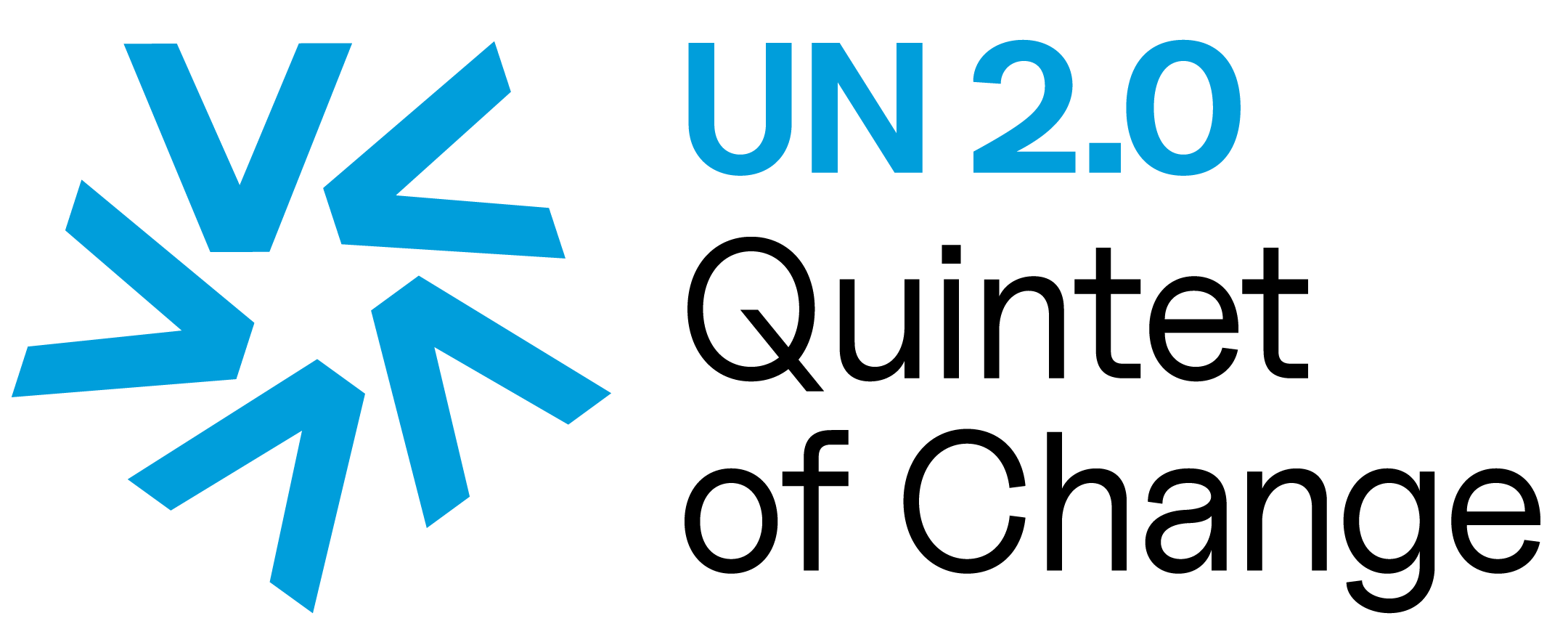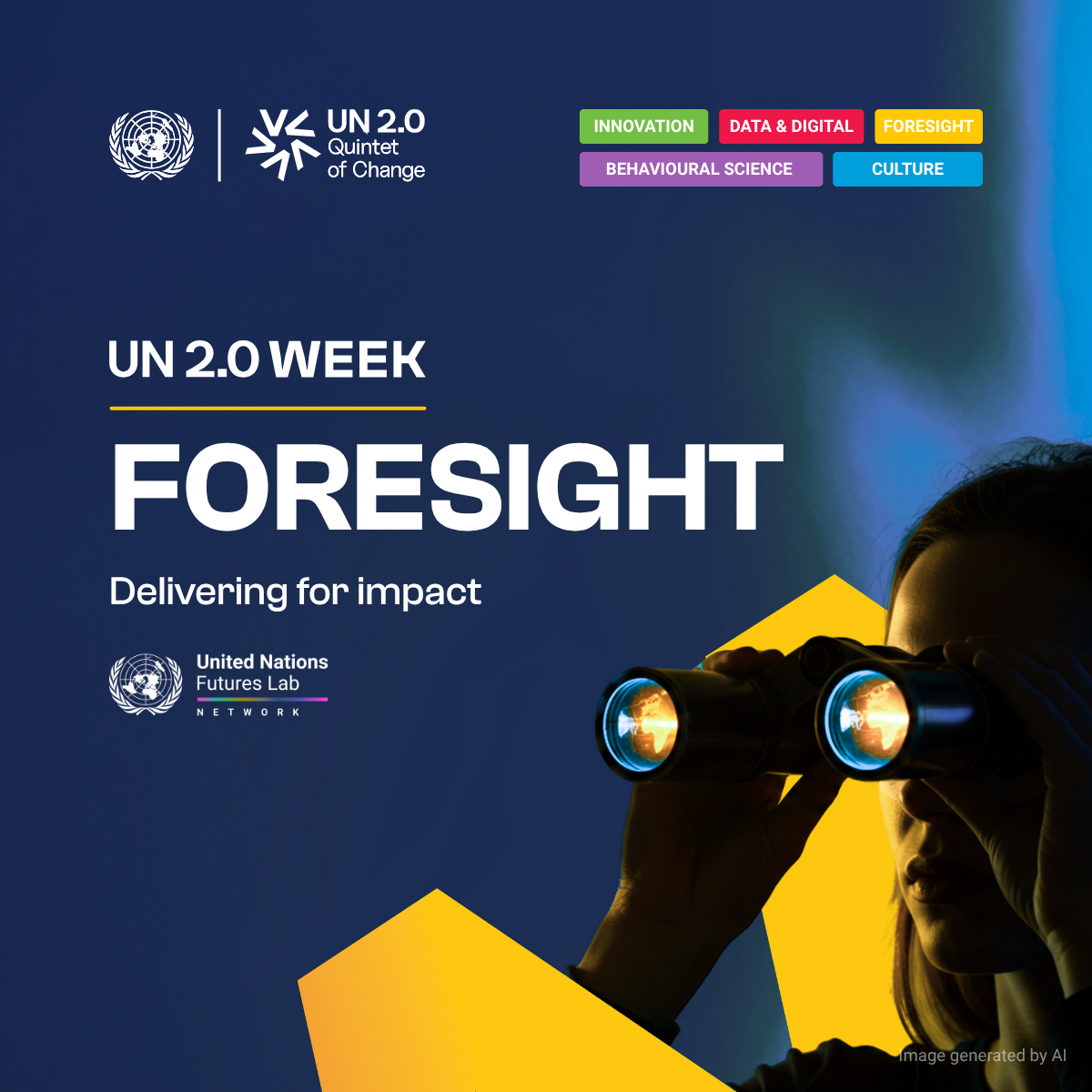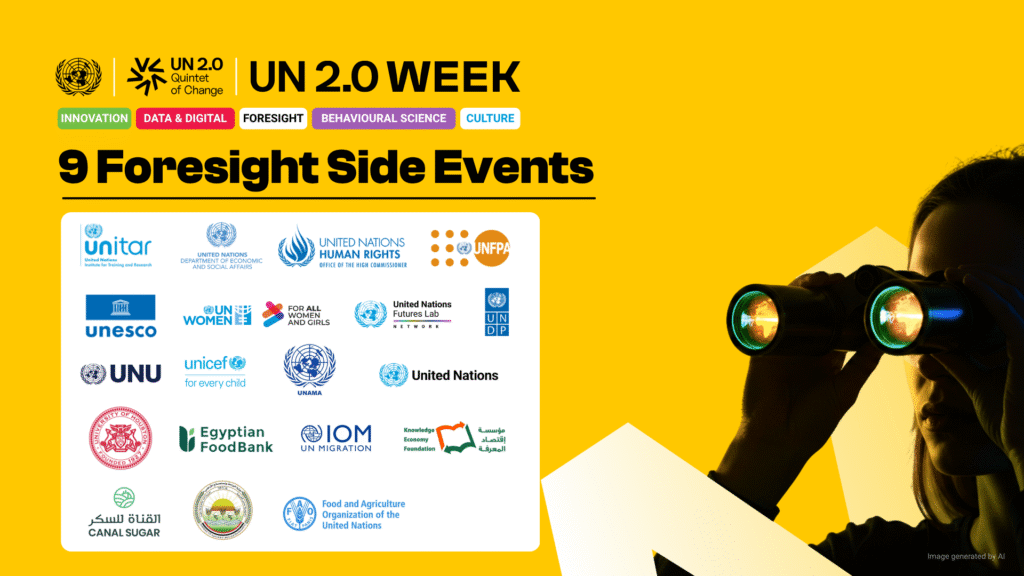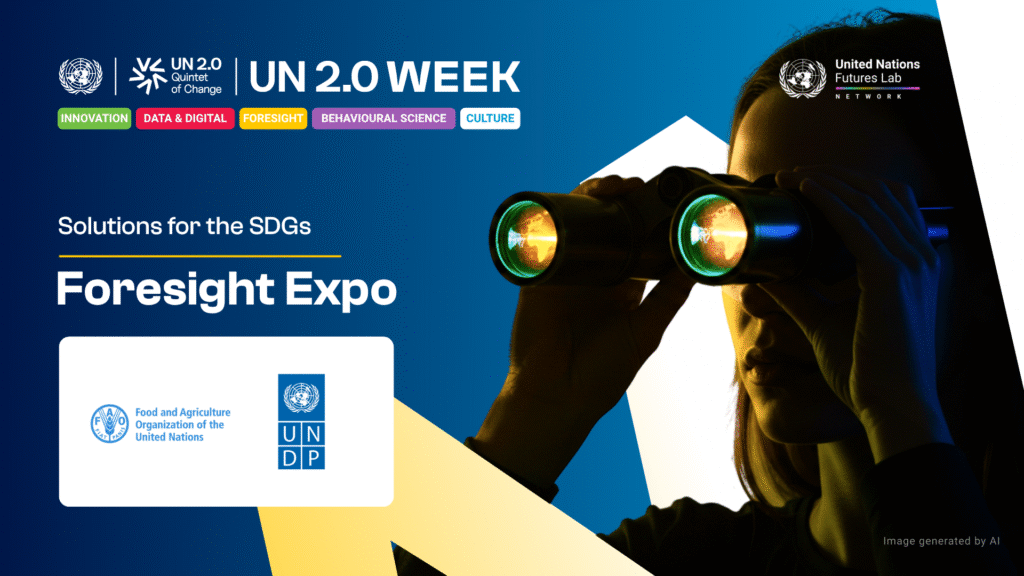UN 2.0 Week 2025: Delivering Foresight for Impact




Showcasing foresight to drive transformation across the UN
The UN Secretary-General’s Our Common Agenda and the vision for UN 2.0 called for a more anticipatory United Nations that could navigate uncertainty and complexity with greater agility and purpose. The Quintet of Change, which includes strategic foresight alongside data, digital, innovation, and behavioural science, was at the heart of this transformation. UN 2.0 Week is an annual series of virtual events exploring how we can radically transform the way we work to accelerate progress on the Sustainable Development Goals (SDGs).
UN 2.0 Week 2025 focused on delivery for impact and featured a strong line-up of top thought leaders and on-the-ground solutions:
- Daily high-level panels featuring senior leaders and practitioners exploring how UN 2.0 could deliver real-world impact
- Five interactive “solutions expo” sessions spotlighting bold, scalable UN solutions
- Over 30 side events fostering cross-sector exchange and practical collaboration
Embedding foresight in the UN
At a time when complex, interconnected risks and accelerating change placed unprecedented pressure on global governance systems, the need for forward-looking, anticipatory approaches in policymaking is more urgent than ever. As the UN continues to build future-ready capabilities through the Quintet of Change, foresight serves as a vital tool for strengthening strategic planning, forward-looking leadership, and system-wide learning across the organization.
Strategic foresight enables the UN system to think beyond short-term cycles, respond proactively to emerging challenges, and shape more resilient, inclusive futures. As foresight practice expands across the organization—from global trend analysis to country-level planning—there is a growing recognition of its potential to drive system-level change.
“Foresight Day” at UN 2.0 Week: Thursday 12 June 2025
Convened by the UN Futures Lab/Global Hub, the day spotlighted strategic foresight in a high-level opening panel, nine side events, and a practical “solutions expo” session.
High-level opening panel
“From Signals to Systems: Embedding Foresight Across the UN” convened a cross-sector high-level panel for an engaging discussion on the role of futures and foresight in enabling a more adaptive, inclusive, and future-ready UN, and supporting more anticipatory approaches across the multilateral system.

What participants experienced
This high-level session elevated foresight from individual initiatives to institutional capacity. It reflected a shared commitment to embedding futures thinking across mandates, fostering intergenerational equity and strengthening the UN’s ability to support Member States through turbulence and transition. By convening a diverse and cross-sectoral panel, the session inspired system-wide engagement with foresight as a lever to enhance anticipatory governance and organizational resilience, spotlighting the value of long-term, inclusive, and imaginative thinking in shaping the future of multilateralism. Panelists representing a range of institutional, regional, and disciplinary perspectives shared practical insights on how foresight was informing decision-making, strategic planning, and institutional transformation across the UN and beyond.
Key highlights from the session:
- Foresight is not a luxury. In an age of disruption, foresight is a critical capability for navigating uncertainty, anticipating risks, and making informed decisions today.
- We must shift from reactive to anticipatory governance. Too often, systems are built to respond only to the urgent. Foresight helps us prepare for what’s emerging – acting early, not just adapting late.
- Signals are not abstract. From climate and technology to geopolitics and inequality, early signals are already here. The challenge is not just recognizing them, but responding together with purpose, speed, and care.
- Foresight must be inclusive and participatory. If foresight is dominated by privileged perspectives, it risks reinforcing blind spots. Lived experience, local knowledge, and diversity of sources and voices must shape how we see and shape the future.
- Institutionalizing foresight requires leadership and tools. Embedding foresight means changing how we plan and prioritize. It must be linked to core systems: planning cycles, budget processes, and mandate design with strong political will and leadership at every level.
- A future-fit co-creating with the next generation. Young people are not just future stakeholders, they are present leaders. Foresight offers space to build intergenerational trust, elevate youth agency, and reimagine governance from the ground up.
Nine side events
A series of curated side events led by UN entities and partners highlighted the diverse ways that foresight is being applied to inform decision-making, strengthen collaboration, and support systems-level change across the UN.

“Solutions expo” and foresight in action for the SDGs

Participants explored how strategic foresight is shaping smarter decisions across the UN system. This “solutions expo” highlighted how UN teams are embedding futures thinking to anticipate risks, shape long-term strategies, and unlock more adaptive, resilient approaches.
Two showcases highlighted how foresight is helping the UN system move from reactive responses to proactive, future-oriented strategies. FAO presented “Foresight in Action: Shifting Livestock Policy from Reactive to Proactive”, while UNDP shared its “Future Trends and Signals System”. Attendees engaged with these real-world use cases, demonstrating the practical value of foresight in action.